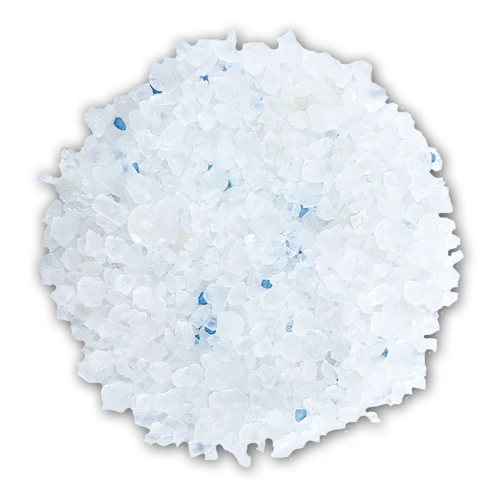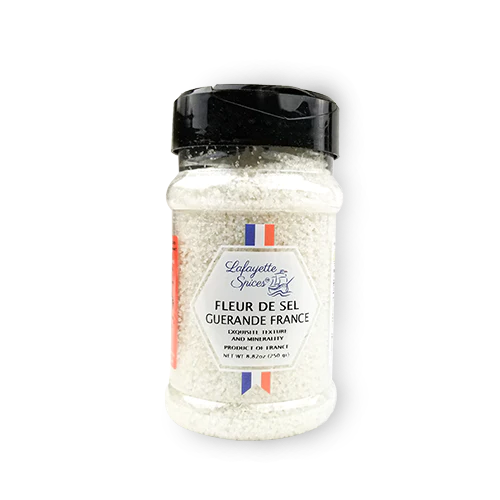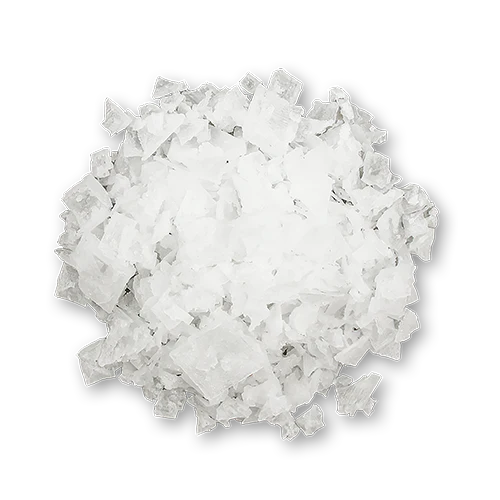
White Pepper vs Black Pepper: Find the Difference
In the clash of White Pepper vs Black Pepper, what makes one better than the other?
Are black peppercorns better than White? Or is White Peppercorn better than Black?
Ladies and Gentlemen, let's spice things up a bit!
Imagine walking into a kitchen full of the aroma of freshly ground spices. You reach for the black pepper and then stop. Hold on a moment. What if you went for the white pepper instead?
What would be the difference? Would it be like a flavor showdown between two spice giants? Would it be like comparing a classic rock song to a modern pop hit? Or would it be like comparing the calm and serenity of a beach with the adrenaline rush of a roller coaster?
Whatever it may be, one thing's for sure, the difference between white and black pepper is going to be one exciting ride!
Are black peppercorns better than White? Or is White Peppercorn better than Black?
Ladies and Gentlemen, let's spice things up a bit!
Imagine walking into a kitchen full of the aroma of freshly ground spices. You reach for the black pepper and then stop. Hold on a moment. What if you went for the white pepper instead?
What would be the difference? Would it be like a flavor showdown between two spice giants? Would it be like comparing a classic rock song to a modern pop hit? Or would it be like comparing the calm and serenity of a beach with the adrenaline rush of a roller coaster?
Whatever it may be, one thing's for sure, the battle between Black Pepper and White Pepper is going to be one exciting ride!
The Great Peppercorn Debate: Black Pepper vs White Pepper
The great peppercorns debate rages on. Are black or white peppercorns better? It’s a question that wars have been waged on and has stumped the brightest minds of the world for ages.
Ok, it’s not quite that dramatic. It’s unlikely that any wars (or even small skirmishes) have been fought in the name of black pepper collection.
But it is a serious question. The two exist, and in reality, are simply different versions of the same spice. And yet the question remains, which one is better?
Well, that’s a tough question to nail in any definable sense. Because when you’re speaking about seasoning in a general sense, both black and white peppercorns are not good in all situations.
Therefore, one is not necessarily better than the other, but rather, white vs black pepper has its own preferred uses & applications.
Let’s take a closer look at the origins of these two seasonings. Just what makes them so special. We will discuss it in more detail in a while.
What is Black Pepper?

If there’s one spice that has infiltrated American kitchens more than any other, it has to be Black Peppercorns. It’s been in the hearts and kitchen cabinets of Americans for centuries!
Black Pepper is indigenous to India, where as early as 1000 BC, traders from Southern Arabia controlled the spice trade and pepper routes. Eventually, the Silk Road was born. A trade route that stretched over 4,000 miles and allowed Italian traders to sell pepper as a luxury item in medieval Europe.
As more trade routes were established, pepper’s popularity quickly spread throughout world cuisines.
At one point, it accounted for nearly 70% of the international spice trade. As it became more readily available, the prices dropped, and ordinary people like you and I were able to enjoy it! Not just for the kings and queens anymore!
There are many different types of black peppercorns available. Knowing all of them, help you make good use of them.
What is White Pepper?

The White Malabar Peppercorn is from the Malabar region of Southwest India. It consists solely of the seed of the ripe fruit.
White pepper is made from fully ripe pepper berries. The darker outer skin of the berries is removed by soaking the berries in water for about a week. So that the skin softens and decomposes.
It’s that very soaking process that gives the White Peppercorns their distinct earthy perfume. Then their skins are removed, which also removes some of the hot piperine compound, as well as volatile oils and compounds that give black pepper its aroma.
As a result, white pepper has a different flavor and heat component than black pepper. The process used and handling of white pepper can introduce different flavor notes as well.
The flavor itself is very complex. Upon first smelling, you’re in store for cheesy earthy notes – maybe even a hint of “something went bad” – but don’t worry! That’s all part of the layers.
The flavor is distinctly earthy and musty with notes of fermented vegetables, aged cheddar, barks, and roots.
White pepper has a hot taste on the tongue, although sources differ on whether it is hotter or milder than black pepper.
For example, Cook's Illustrated says it's milder, while others say it has a sharper bite. Sources agree that white pepper is less complex in flavor than black pepper. It can have a musty, earthy, or grassy flavor, which can vary depending on the type of processing used and handling after production. Some also note nuances of citrus. So many different layers!
Is white pepper hotter than black pepper?
No, white pepper is generally not considered to be hotter than black pepper. They both have different levels of heat and pungency.
Black pepper has a sharper and more intense flavor. White pepper, on the other hand, is milder and smoother in flavor.
In general, black pepper is considered to be the spicier of the two. Although the heat level of both can vary depending on the growing conditions and processing methods. So, to answer the question, black pepper is usually considered to be hotter than white pepper.
What is the taste difference between white and black pepper?

The white and black peppercorns each have their own distinct flavor profiles.
They both come from the same plant species, Piper nigrum. But the difference in taste between the two is primarily due to the differences in processing and aging.
Black Peppercorn vs White Peppercorn taste
Here's a breakdown of the taste differences between black and white peppercorns:
Flavor:
Black pepper has a sharp, pungent flavor that is slightly fruity and slightly hot. The flavor comes from compounds called piperine and volatile oils.
White pepper has a milder, smoother flavor than black pepper, with a slightly earthy and slightly hot taste. Some people describe the flavor of white pepper as being "woody" or "mushroomy".
Due to the taste difference, they should be used in different manners and applications.
For instance, the dark woodsy cocoa flavors of the black peppercorn are best when paired with heavier meats and root vegetables. Think beef roasts, lamb, burgers, roasted carrots, mushrooms, duck – that kind of thing!
On the flip side, our Malabar White Peppercorns are ideal for lighter more delicate proteins and produce – think seafood like bass, scallops, and swordfish; meat like chicken and pork; and veggies like spring peas and ripe summer tomatoes.
Aroma:
Black peppercorns have a rich, earthy aroma with hints of pine and floral notes.
White peppercorns have a gentler aroma than black peppercorns, with subtle floral and fruit notes. The aroma is less intense and spicy.
Appearance:
After drying, black peppercorns have a wrinkled, dark black outer layer, which gives them their characteristic appearance.
White peppercorns are lighter in color, ranging from cream to pale yellow because the outer skin is removed during processing.
Can I substitute black pepper for white pepper?
Yes, you can substitute black pepper for white pepper. Although the resulting flavor and aroma will be different.
If you are substituting black pepper for white pepper in a recipe, keep in mind that the amount you use may need to be adjusted. As black pepper has a more pronounced flavor. Additionally, black pepper will be visible in the finished dish, while white pepper is less noticeable.
It's important to note that some recipes, such as creamy sauces or white soups, are specifically designed to be made with white pepper, as black pepper can affect the color of the dish. In these cases, substituting black pepper for white pepper is not recommended. As it will result in a dish that looks and tastes different from what was intended.
Ultimately, whether or not to substitute black pepper for white pepper comes down to personal preference and the specific dish being prepared. Experimenting with both types of pepper can help you determine which one you prefer, and which one works best in different recipes.
At the end of the day, one peppercorn isn’t better than the other, more importantly, how you use them is key. The application is paramount to allowing the spice to really shine.
White Pepper vs Black Pepper: Health Benefits

Both black pepper and white pepper come from the same plant and have some similar health benefits. However, there are some differences in their nutritional profiles and health benefits.
Some of the health benefits of black pepper and white pepper include:
Antioxidant properties: Both black and white pepper contain antioxidants. It helps protect the body against damage from free radicals.
Anti-inflammatory effects: Black and white pepper have been shown to have anti-inflammatory effects. It may help to reduce the risk of certain chronic diseases.
Digestive health: Black and white pepper can help stimulate digestive enzymes. It aids in the digestion of food and promotes healthy digestion.
Potential pain relief: Some studies have suggested that black and white pepper may have pain-relieving properties. Although more research is needed in this area.
Potential anti-cancer properties: Some preliminary studies have suggested that black and white pepper may have anti-cancer properties. Although more research is needed in this area.
It's worth noting that black pepper has a higher content of essential oils, vitamins, and minerals compared to white pepper. But white pepper is lower in compounds that can cause digestive discomfort for some people.
So it's best to consult a healthcare provider before incorporating large amounts of black or white pepper into your diet.
Black Peppercorn vs White Peppercorn Nutrition
Peppercorns, in general, are a good source of several essential nutrients and antioxidants. Although they are often used in small quantities, the nutritional contribution to a diet is relatively minor.
Here's a general overview of the nutritional content of both black and white peppercorns:
Calories:
Both black and white peppercorns are very low in calories. A one-teaspoon serving of either black or white peppercorns typically contains less than 5 calories.
Macronutrients:
Peppercorns are not a significant source of macronutrients. They contain negligible amounts of protein, fat, and carbohydrates.
Dietary Fiber:
Peppercorns contain a small amount of dietary fiber, which contributes to their very low-calorie count.
Micronutrients:
Both black and white peppercorns provide small amounts of micronutrients. Including minerals like manganese, iron, and vitamin K. These quantities are not significant, but they do contribute to the overall nutritional profile of peppercorns.
Antioxidants:
Peppercorns, like many spices, contain antioxidants. Black peppercorns are particularly known for the presence of piperine, which may have some antioxidant properties.
How to use White Pepper vs Black Pepper in different recipes
Understanding when and how to use white pepper vs black pepper can significantly impact the flavor of your dishes. In this culinary guide, we will explore the nuances of white and black pepper. Offering insights into their distinct characteristics and providing practical tips on incorporating them into a variety of recipes.
White Peppercorn Recipes
Welcome to the White Pepper Lover's 101. It’s a journey into the aromatic world of white peppercorns. But there’s a twist. We won't be handing you a typical recipe book. No, we're delving deep into the art of using white peppercorns. Think of it as your secret weapon in the kitchen, elevating flavors and adding that extra oomph to your culinary creations.
Ground White Peppercorns:
Let's begin with the basics! Ground white peppercorns are your all-purpose spice. Seamlessly blending into soups, sauces, and creamy dishes, ensuring a smooth texture with gentle heat.
Whole White Peppercorns:
For those who enjoy the thrill of pickling adventures or mastering the art of marinades, whole white peppercorns are your go-to. They infuse liquids slowly, imparting a subtle warmth that lingers delightfully on the taste buds.
Coarse White Peppercorns:
Ah, the magic of texture! Crushed white peppercorns, created with a mortar and pestle. Add a delightful crunch to rubs for meats like pork or beef, offering a sensory experience that's as pleasing to the mouth as it is to the nose.
White Peppercorns in Creamy Sauces:
Creamy sauces, whether drizzled over pasta or enveloping a succulent piece of chicken, come alive with the addition of ground white peppercorns. Their mild heat harmonizes beautifully with the richness of the sauce, creating a symphony of flavors.
White Peppercorns in Baked Goods:
Who knew that a pinch of ground white peppercorns could elevate your baked goods? Whether it's gingerbread or spice cookies, this unexpected addition brings a subtle warmth, making every bite a delightful surprise.
White Peppercorns in Salad Dressings:
Salads need not be boring, and ground white peppercorns are here to prove it. Incorporate them into your dressings for an unexpected twist! It tantalizes the taste buds, making every mouthful an adventure.
Black Peppercorns Recipes
Black Peppercorns can be used in a wide variety of dishes. It's not just a spice; it's a flavor enhancer, a story weaver, and a kitchen magician. It’s the secret of transforming ordinary dishes into extraordinary culinary masterpieces.
Black Peppercorns Ground:
Ah, the classic. Ground black peppercorns are the quintessential seasoning, the unsung hero of kitchens worldwide. A sprinkle here, a dash there - this fine powder elevates everything from soups to sauces, unveiling its robust, aromatic flavor.
Black Peppercorns Whole:
Imagine these tiny spheres as flavor time capsules. When they meet heat, they burst, releasing a tantalizing aroma that permeates your dishes. Drop them into stews, soups, or marinades, and watch as they transform ordinary liquids into extraordinary elixirs.
Black Peppercorns Coarse:
The coarse crush of black peppercorns is the secret weapon of spice rubs. It adds not just flavor but also texture, creating a delectable crust on meats. Picture biting into a perfectly seasoned steak, the satisfying crunch telling a story of careful preparation.
Black Peppercorns in Marinades:
When crafting marinades, consider black peppercorns your best-kept secret. Crush them or leave them whole, and let them work their magic. As meats marinate, they soak up the bold flavors, infusing every fiber with a rich, spicy goodness.
Black Peppercorns in Stir-Fries:
Stir-fries, those quick and vibrant dishes, benefit greatly from the addition of crushed black peppercorns. Their heat cuts through the sweetness of vegetables and balances the umami of meats, creating a symphony of flavors in every bite.
Black Peppercorns in Baked Goods:
Believe it or not, a pinch of ground black pepper can transform your baked goods. In chocolate desserts, spice cakes, or even shortbread cookies, it adds depth, making each bite a delightful surprise.
FAQs about White Pepper vs Black Pepper
Among the intriguing choices are white and black pepper, each bringing its unique character to the table. The subtle distinctions between these two pepper varieties often leave home cooks and culinary enthusiasts with a slew of questions.
To demystify the complexities and help you make informed choices in your culinary adventures, we've compiled a list of frequently asked questions about the difference between black and white pepper.
Is white pepper better than black pepper?
Ans: The choice between White Pepper Vs. Black pepper is a matter of personal preference and the specific culinary application. Neither is inherently better than the other; they simply offer different flavor profiles and visual impacts in dishes.
Some recipes may specifically call for one over the other, but both peppers have their unique qualities that can enhance different types of dishes. It's a matter of understanding their differences and choosing the right one based on your culinary needs and preferences.
Why use white pepper instead of black?
Ans: White pepper has a milder, less complex flavor compared to black pepper. Some people prefer white pepper because it adds a subtle heat without the strong, pungent taste associated with black pepper. This can be desirable in dishes where you want a more delicate flavor.
Can I substitute white pepper for black pepper?
Ans: Yes, you can substitute white pepper for black pepper in most recipes, but it's essential to consider the flavor and appearance differences between the two.
If substituting white pepper for black pepper, you may need to adjust the quantity to achieve the desired level of heat. White pepper can be a bit hotter than black pepper, so start with a smaller amount and taste as you go. You can always add more if needed.
Which is the healthiest pepper?
Ans: Both black pepper and white pepper are derived from the same plant, Piper nigrum. And they offer similar health benefits. Neither one can be definitively labeled as "healthier" than the other, as their nutritional profiles are quite similar. Both types of pepper contain compounds that have antioxidant properties and potential health benefits.
Black pepper contains a compound called piperine, which gives it its characteristic pungency and has been studied for its potential health effects. Piperine is believed to enhance the absorption of certain nutrients in the body and has antioxidant and anti-inflammatory properties.
White pepper, on the other hand, is essentially black pepper with the outer skin removed. It has a milder flavor but retains most of the beneficial compounds found in black pepper.
In terms of health, the choice between black and white pepper is more about personal preference, culinary use, and dietary restrictions. Some people may prefer the milder taste of white pepper, especially in dishes where a subtle pepper flavor is desired. Others may prefer the stronger taste of black pepper.
When it comes to overall health, what matters most is incorporating a variety of herbs and spices, including both black and white pepper, into a balanced diet. The diverse compounds found in different herbs and spices contribute to the overall health benefits of a varied and nutritious diet. As always, if you have specific health concerns or dietary restrictions, it's best to consult with a healthcare professional or a registered dietitian.
Why white pepper is different from black pepper?
Ans: The primary difference between white pepper and black pepper lies in how they are processed after harvesting. Black pepper is made by picking the unripe green berries of the pepper plant and drying them in the sun, which causes them to darken and wrinkle, turning them black. White pepper, on the other hand, is made by allowing the ripe berries to ferment. During the fermentation process, the outer layer of the berry softens and loosens. After fermentation, the berries are washed to remove the outer skin, leaving the inner seed exposed, which is then dried. This inner seed is what we know as white pepper.
How much black pepper do I substitute for white pepper?
Ans: When substituting black pepper for white pepper or vice versa in a recipe, it's important to consider the differences in flavor strength. White pepper has a milder flavor than black pepper, so you may need to adjust the quantity to achieve the desired level of spiciness. Here's a general guideline you can follow:
To substitute black pepper for white pepper:
Use an equal amount of black pepper as the quantity of white pepper is called for in the recipe. Since black pepper has a stronger flavor, using the same amount will compensate for the milder taste of white pepper.
To substitute white pepper for black pepper:
Use 2 times the amount of white pepper as the quantity of black pepper called for in the recipe. For example, if the recipe calls for 1 teaspoon of black pepper, you would use 2 teaspoons of white pepper. This adjustment accounts for the milder taste of white pepper.
Remember, these are general guidelines, and the best approach is to start with a smaller amount of the substitute, taste the dish, and adjust as needed. Personal taste preferences play a significant role in determining the ideal amount of pepper to use in a recipe.
Why do chefs use white pepper?
Chefs often choose to use white pepper in their culinary creations for several specific reasons:
- Milder Flavor
- Aesthetic Purposes
- Texture
- Balancing Flavors
Ultimately, the choice to use white pepper in the kitchen depends on the specific recipe and the chef's preference for the desired flavor, appearance, and texture in the final dish.
Which one is spicier, black pepper or white pepper?
Ans: Black pepper is generally spicier than white pepper. The outer layer, which is removed in white pepper, contains compounds that contribute to its pungency. White pepper, being milder, is often used in dishes where a subtler flavor is desired.
Which one is better for soups and sauces, black pepper or white pepper?
Ans: Both black and white pepper can be used in soups and sauces. However, white pepper is often preferred in creamy soups and sauces because it blends in without adding black specks, making the dish visually appealing.
Does the choice between black and white pepper affect the color of my dish?
Ans: Yes, it can. If appearance matters, choose white pepper for light-colored dishes. It won't leave dark specks, ensuring a visually pleasing presentation. Black pepper is ideal for darker sauces and dishes where its appearance won't be as noticeable.
Is there a difference in health benefits between black and white pepper?
Ans: Both black and white peppers contain the same active compound, piperine, which has potential health benefits. The choice between them usually depends on taste preferences and the visual impact on the dish, rather than their nutritional differences.
Can I use black and white pepper interchangeably in spice blends?
Ans: Yes, you can use black and white pepper interchangeably in spice blends. Just keep in mind the potential color difference in the final dish, especially if the spice blend is light in color.
Are there specific cuisines where black pepper is preferred over white pepper or vice versa?
Ans: Culinary traditions vary, but generally, black pepper is more commonly used in Western cuisines, while white pepper is often found in Asian and certain European cuisines. However, these distinctions are not strict, and personal preferences and regional variations play a significant role in their usage.
Remember, in the great peppercorn debate, application is key. Understanding the flavors and visual impact of black and white pepper will help you make the right choice for your culinary creations.
Final Thoughts
After much consideration, we can safely say that the key to this debate is, drumroll, please...APPLICATION!
Yes, that's right folks. It's all about how you use these peppery powerhouses.
Black pepper may be the king of the spice cabinet, but white pepper is no slouch in the flavor department.
And when it comes to adding a kick to your dish, both of these peppercorns have the power to deliver.
So, whether you're a fan of black pepper's bold, spicy flavor or white pepper's subtle heat, the real winner here is how you apply these peppery gems to your dish.
Whether you grind it, crack it, or sprinkle it, the right peppercorn can take your dish from bland to grand.
So, let's raise a glass of peppercorn to the power of application! Cheers to the great peppercorn debate. And the conclusion is that, in the end, it's all about how you use these spicy superstars!
The difference between black and white pepper will always be there. What you need to know is how to use them. Black vs white pepper is not a matter of debate, but the taste for your culinary creation's distinct character.
To find more details about Exquisite Spices, visit: https://www.lafayettespices.com/











